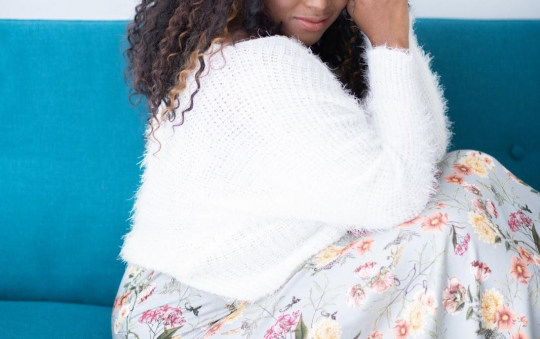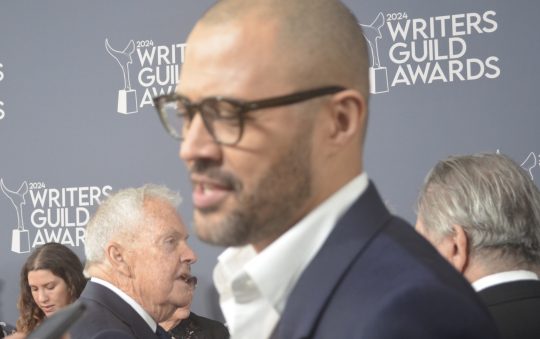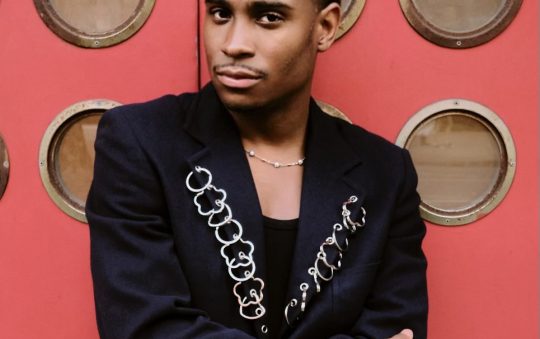
From Career to Cosby, Beverly Bares It All!
Beverly Johnson rose to fame in August of 1974 when she made history as the first African-American to grace on the cover of Vogue magazine. The multi-talented supermodel/actress/businesswoman/author has enjoyed an enduring career which has included writing several books and starring in her own reality-TV series, “Beverly’s Full House.”
Recently, she has bravely stepped forward to speak about the assault she suffered at the hands of Bill Cosby. Here, she talks about that as well as her new autobiography, “The Face That Changed It All.”
KW: What interested you in writing your autobiography?
BJ: I’m not the type of girl who cries a lot, but I’m crying right now because I don’t know whether I’d written it, if my mother hadn’t developed Alzheimer’s. There are many things in the book that I know would’ve caused her a lot of pain, and I wouldn’t want to do that to her. When you think about trying to reduce a life of 60 years to 250 pages, it’s a little overwhelming.
KW: How did you go about deciding what to include?
BJ: Basically, what I did was break it up into childhood, Seventies and Eighties. I kinda bit off half of it. It was also important to me as an African-American to write this because we’ve had a very painful history, and haven’t passed our stories down, perhaps out of shame. I believe that we should tell our stories, because they’re important for the future generations. So, I want to make sure I leave my story, even though it isn’t all pleasant. I don’t want anyone to pass away with their song still inside them. That’s really why I decided to write my memoirs.
KW: Have you forgiven Bill Cosby for what he did? Why or why not? (Question submitted by Marilyn Marshall)
BJ: Oh, dear! Oh, yes! I’m not angry, I’m not bitter, I don’t want anything, and I forgive him.

KW: Teresa Emerson says: Hi Beverly, I’m anxious to read your autobiography! Were you aware of, or had you heard about, Cosby’s reputation at all before all this happened? If so, did you just dismiss it as rumors, never thinking he would do anything to you? (Question submitted by Teresa Emerson.)
BJ: No, honey, I’m a very smart girl. If somebody warns me, “Don’t go around that corner because there’s a giant sinkhole you could fall into.” then I’m going to go in the other direction. That’s just how I am by nature. I’d be like, “Thanks for pulling my coattail.” That is what is so astounding, the secrecy that was maintained not only by the people in his circle but by the press and the police. It speaks volumes about the silence in society when it comes to violence against women in general. I don’t see it as just a Cosby issue, but as a societal one that he has become the lightning rod for.
KW: Did you worry whether going public about the Cosby episode might overshadow your many accomplishments, meaning, you’d be remembered for that instead of as the first black face to grace Vogue magazine? (Question submitted by Felicia Haney.)
BJ: I’ll tell you this much. Whenever I discuss my legacy with my daughter, I always say, “I just want one school named after me. One school. I never wanted part of it to be that I was once drugged by Bill Cosby. I don’t think anybody would want that. For me, going public all came down to my conscience and my principles. I had to go where they led me.
KW: You didn’t let the Bill Cosby incident cripple you? How did you heal from it? (Question submitted by Irene Smalls.)
BJ: I’ve always done a lot of work on myself whether in the way of therapy, a 12-Step program or self-help books. We have so many options to better ourselves and our mental health. I’m the type of person who wants to take advantage of those services, and I think I did. I also healed with the help of my spiritual connection to a higher power.
KW: You were initially drawn to a career in law due to the huge impact the Civil Rights movement had on your life. But you instead made your mark as the first black cover model of American Vogue in 1974. Law and modeling strike me as aspirations with very little in common. So, what turned you from the grand aspiration of broad-based cultural change to the narrower aspiration of breaking down a racial barrier in a particular industry?
(Question submitted by David Roth.)

BJ: That’s another great question. The answer is money. My father was making $75 a week as a steel laborer. I was floored to learn that a model made $75 an hour for standing there with her hand on her hips. For me, it was a no-brainer, since it afforded me an opportunity to help my family. I had always envisioned finishing school. But I ended up the only one in my family who didn’t finish college. Fate just has a way of intervening and showing you a viable alternative. And as far as being that person who appeared on that Vogue cover at that particular moment, I had nothing to do with it. When I’m reflecting and really connected to my higher power, I think it would have been a crime to turn my nose up at something that I really felt was a gift. I believe God gives each of us certain gifts, and you should take advantage of those gifts.
KW: Was there a meaningful spiritual component to your childhood?
BJ: Yes, very much so. My mother dressed us up to go to Sunday school, although my father was a little skeptical and would make us think. He’d say things like, “Now, don’t put all your money in the collection box.”
KW: What’s the biggest difference between who you are at home as opposed to the person we see on the red carpet? (Question submitted by Viola Davis.)
BJ: I’m an introvert.
KW: Who loved you unconditionally during your formative years?
BJ: I My whole family. My parents and my siblings.






